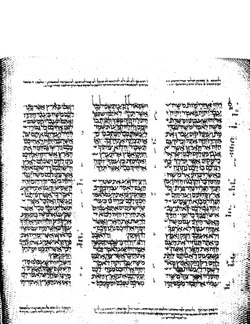| Joshua 23 | |
|---|---|
 The pages containing the Book of Joshua in Leningrad Codex (1008 CE). | |
| Book | Book of Joshua |
| Hebrew Bible part | Nevi'im |
| Order in the Hebrew part | 1 |
| Category | Former Prophets |
| Christian Bible part | Old Testament |
| Order in the Christian part | 6 |
Joshua 23 is the twenty-third chapter of the Book of Joshua in the Hebrew Bible or in the Old Testament of the Christian Bible. [1] According to Jewish tradition the book was attributed to Joshua, with additions by the high priests Eleazar and Phinehas, [2] [3] but modern scholars view it as part of the Deuteronomistic History, which spans the books of Deuteronomy to 2 Kings, attributed to nationalistic and devotedly Yahwistic writers during the time of the reformer Judean king Josiah in 7th century BCE. [3] [4] This chapter records the Joshua's farewell address to tribes of Israel, [5] a part of a section comprising Joshua 22:1–24:33 about the Israelites preparing for life in the land of Canaan. [6]

